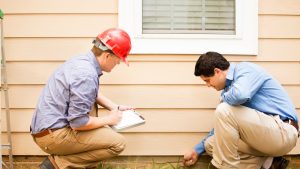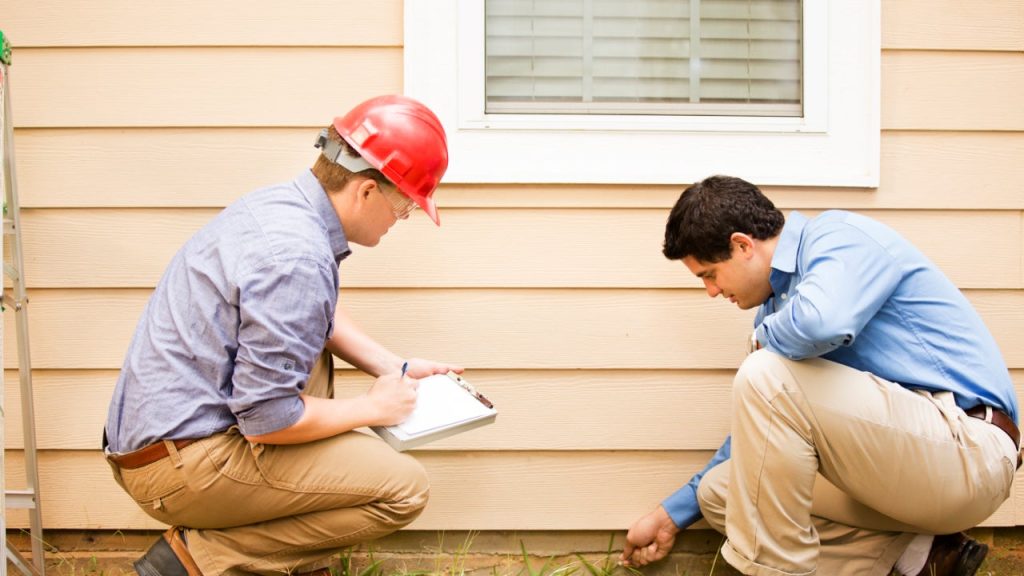Another expense might seem like the last thing you want when you’re buying a house. But most real estate professionals recommend a professional home inspection to get a better idea of what condition the property is in, and what problems might be lurking.
An inspection is a crucial way to gather information before finalizing a home purchase, which might well be the largest financial investment you’ll ever make. It’s worth paying a small amount of money for an inspection now to potentially save you substantial money — and headaches — in the future.
Here’s what you should know about the cost of home inspections, what they entail and why you should resist the temptation to skip this important step in the homebuying process.
What does a home inspection cost, on average?
Home inspection costs vary by geographic location, and also by the specific house. The average price tag across the country is $343, according to HomeAdvisor, though you could spend as little as $296 or as much as $424 — or even more — depending on where you live. Homebuyers in Hartford, Connecticut, for instance, pay an average of $489, HomeAdvisor says.
The average cost of a home inspection is $343 — a relatively small price to pay for peace of mind about your new home’s condition.
Additional factors that impact inspection costs include a home’s size and age. The fee for a large home of more than 2,000 square feet averages around $400, while less than 1,000 square feet might cost just $200. In some cases, a home inspector may charge a flat rate for homes up to a certain size and increase the fee incrementally for larger homes. In older homes, where the wiring and plumbing may require a more thorough inspection to ensure everything is up to code, inspectors may charge a higher fee.
Other factors that affect an inspection cost are how unusual the home is and how far the inspector has to travel to get there. In addition, inspectors with more experience may charge more than those with less.
Do you really need a home inspection?
Some homebuyers may be tempted to waive the inspection to make their offers stand out from the competition, or just to save time or money. That’s typically a bad idea: A home inspection can help you avoid potentially expensive surprises, like structural flaws or hidden damage. While not required by law, buyers can greatly benefit from having a professional give the property a thorough examination.
In most states, sellers are legally required to disclose fundamental problems with the property. But that’s just disclosing what they already know about; they aren’t required to go digging for other potential problems. A home inspector, however, does just that.
“A home does not have a ‘check engine’ light,” says Frank Lesh, owner of the Home Sweet Home Inspection Company and ambassador for the American Society of Home Inspectors (ASHI). “Things may be wrong that the homeowner or purchaser are honestly unaware of.”
What does a home inspection include?
Your home inspector should do a thorough visual examination of the important structures and systems of the property. The process generally takes several hours and includes a review of the major systems in a home, such as the heating, central air, plumbing and structural components. An inspector may also inspect appliances that will be included with the home sale, as well as any general safety hazards.
What the inspector will not do is repair what they find: “We only report what we see,” Lesh says. “It is against the ASHI code of ethics to do repairs on anything we inspect, so there is no incentive for the inspector to find a problem — or not.”
Here are some of the major things an inspector’s report will cover, according to ASHI:
- Roof condition
- Signs of water damage
- Electrical systems
- Heating and air conditioning systems
- Plumbing
- Attic
- Visible insulation
- Walls, ceilings and floors
- Windows and doors
- Foundation
- Basement and structural components
If an inspector discovers any alarming findings they don’t have expertise in, they may recommend specialists to provide more insight. These special inspections will be an added cost and can include structural engineers or experts in things like septic systems, wells, radon or asbestos. A specialist can provide quotes and recommendations on how to fix the issue — the cost will vary widely by field and by company.
How to choose the right home inspector
Whether you hire a home inspector recommended by your real estate agent or one you find on your own, ask for proof of state certification or membership in industry groups, such as ASHI, the National Association of Certified Home Inspectors (NACHI) or the National Association of Home Inspectors (NAHI). It’s also a good idea to find a professional who has plenty of experience.
You can also ask to see a sample report to get an idea of how thorough each inspector is. A sample report that indicates a more thorough inspection might justify an inspector’s higher price.
The answers you get from asking around will give you a range to determine what you should pay. The best way to discern whether an inspector is charging you a fair price is to see what other inspectors in your area are charging for homes like the one you want to buy. You may be able to shop online — some inspectors publish their fees on their websites.
FAQs
Read the full article here










